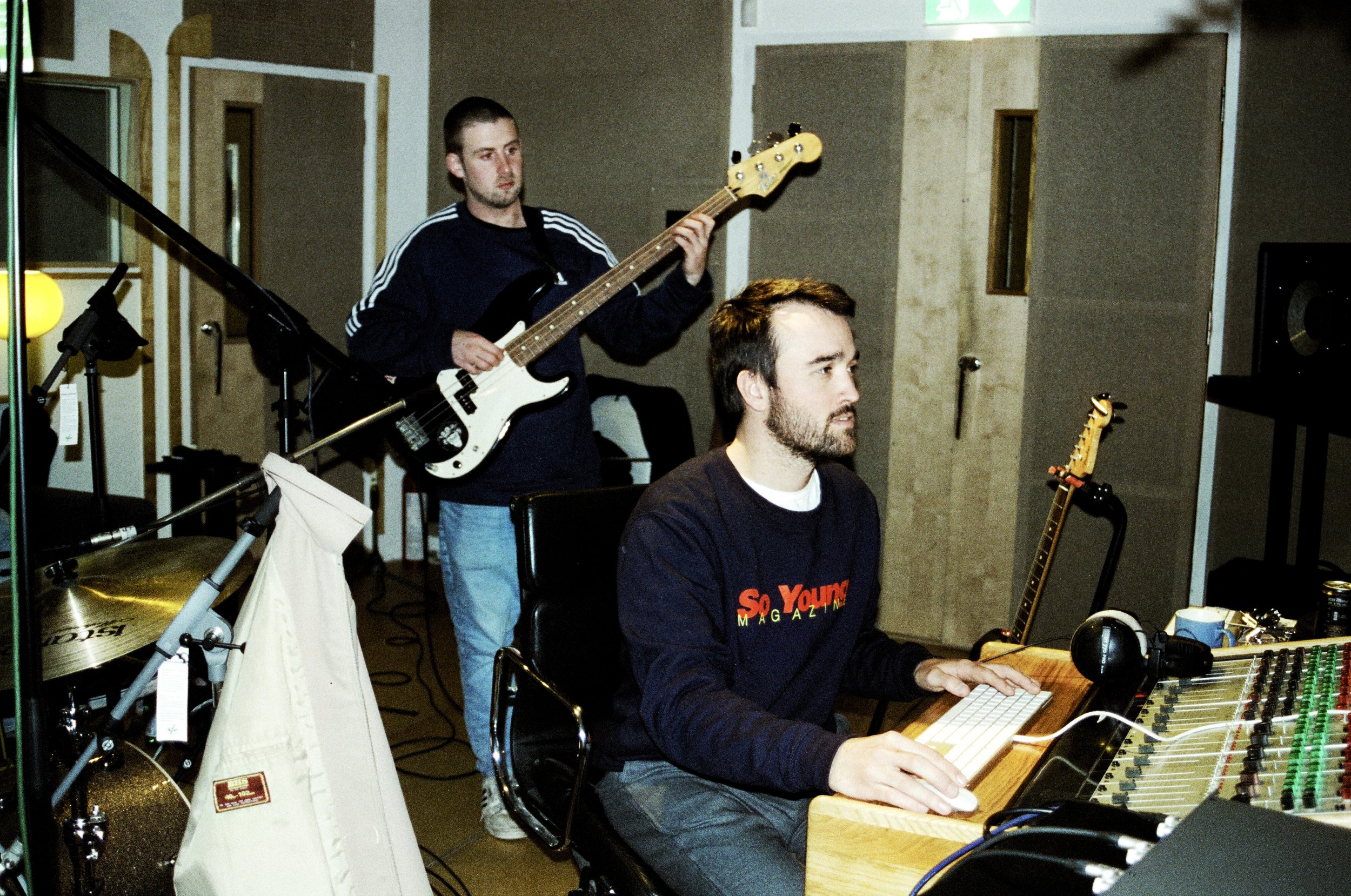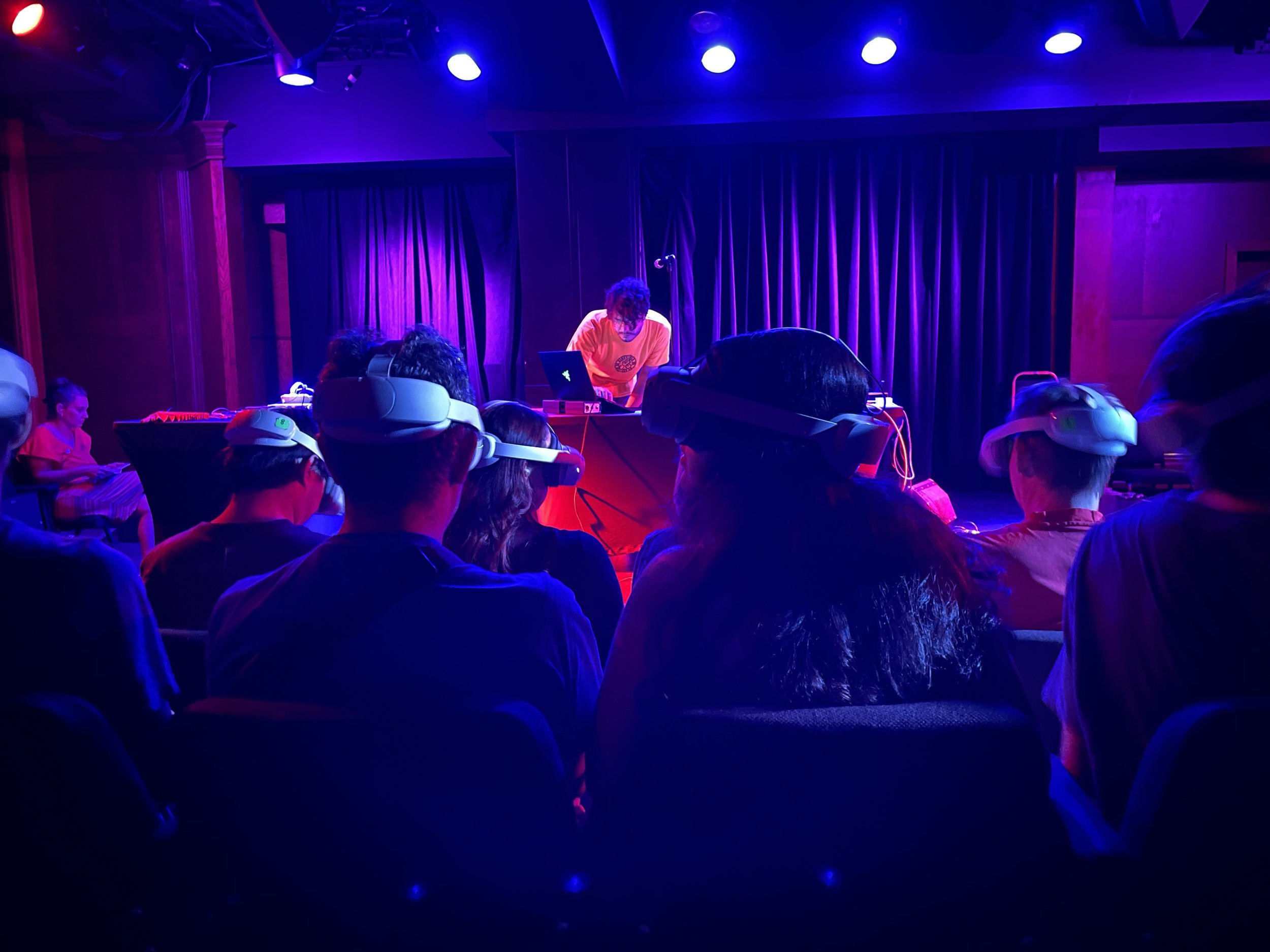All You Need To Know About Live Showcase Tech-Advancing with Louis Milburn
Photo credit: Nicole Osrin
Tech consultant, musician and recording engineer Louis Milburn introduces live performance tech-advancing, helping you prepare for your next live showcase.
On and off-stage, Louis Milburn is all about elevating music. As a musician and recording engineer based out of London, he started out fresh from school, launching into five years of touring around the world as a session musician. Louis then co-founded the band Folly Group and when off-tour, became a live sound engineer working in venues across London, developing a deeper understanding of running live music events from the other side of the mixing desk. “During my time working at the Windmill in Brixton I worked the sound for some incredible gigs”, Louis recalls. “My favourite three would probably be an early Black Midi show, a secret Fontaines DC set and a Jockstrap gig where they played with a live bassist and a guy on SPD. That one was pretty incredible”.
Louis first joined British Underground in 2012 for his work experience week when he was just 14. “Frank Ocean’s ‘Channel Orange’ had just come out and we played it the whole week!”
After a successful initial week, Louis has continued to collaborate with us, being one of the people in our community who are on the pulse of emerging musicians in the UK. “I’ve also attended SXSW as a musician three times in the last nine years with different acts, so international link ups with British Underground were always part of my trips” says Louis.
Now, Louis uses his skills and experience to record and produce music in the studio for other acts in addition to writing and touring with Folly Group. As Louis’s career has evolved, so has his work with BU. Today, we work closely with Louis, who advances artists (the stage after booking an artist which brings together practical elements like instrument lists, social media details, riders, call times and so on) for a selection of our international live music showcases.
Discover Louis’s real industry-experience insights on what live showcasing tech-advancing is and how artists and their teams can better prepare for a great live performance experience.
Photo credit: Nicole Osrin
What is a tech spec?
A technical specification (or a tech “rider”) is a document that breaks down what the artist needs for a live performance. The tech advance usually comes from either somebody at the venue or the festival. Then the artist specific tech specs need to come from each act’s team individually.
At large scale events, this document can be incredibly detailed but as far as preparing for smaller scale live performances, you need:
A Stage plot: this is a basic drawing detailing your stage setup i.e. the placement of your equipment and on stage personnel.
Channel list: this breaks down every channel of audio you will be sending to the mixing desk.
Backline requirements: if there is anything you expect the venue/promoter to provide in terms of equipment, state this here. Anything from microphones, amps, drum stools or cables should be mentioned to avoid confusion down the line.
What is a tech consultant?
In my capacity at BU, a tech consultant is an administrative and advisory role. I collate artist tech specs and make sure that both the artist and venue has everything they need for a showcase to run smoothly.
For the artist or artist team, this often means working with hire companies to ensure they can get a hold of any backline (the instruments on the stage) and often advise what they do or do not need to bring.
For example, if a live jazz act is flying to the US for a SXSW showcase, I might suggest not flying with your double bass and instead hiring one in for that concert. It’s always about finding a balance between a) whatever an artist needs to play the best show possible, b) cost and c) the level of logistical difficulty.
On the venue side, I check through their specs to make sure the venue has the equipment we expect and liaise the artist se4t ups with the sound engineers ahead of time.
Why do live shows need tech advancing?
Live shows need tech advancing because everybody needs to be on the same page in regards to what equipment will be provided to an artist for a show and what equipment the artist needs to bring with them. Tech advancing also includes timings for show elements like loading-in, the soundcheck and the performance itself.
At BU we produce international industry showcases where sometimes, we have upwards of 10 acts flying in to play per showcase per day, usually without a soundcheck. Across a week-long event such as SXSW this can add up to hundreds of acts. In our case, our acts are also emerging artists with small teams who may need support with sorting out these logistical details. We try to make sure no detail is overlooked and everyone is prepared and comfortable with what they’ll be stepping into so that when an artist goes on stage to set up 10 minutes before their stage time, everything they need is there.
What are your favourite BU showcases you’ve tech-consulted for?
For the last two years I’ve worked on the Jazz re:freshed showcases at SXSW, which is always fun due to some of the sizes of the acts in terms of how many people they have on stage as well as of course the music. Jazz acts always have the more interesting requirements for their live setups and I genuinely enjoy hiring their stuff for them, from analog synthesisers to congas and vibraphones.
If you are an artist showcasing live abroad for the first time? What do you need to consider?
Minimise your set up
I would always suggest minimising your setup where possible. You’ll get a very limited time to set up before you play and having the fewest number of channels possible (within reason given your style of performance) will always stand you in good stead.
Consider your power sources
Power is another big one. Bring travel adapters. Less obvious is remembering that different countries have different power standards. For example, the standard mains voltage in the UK is 230v whereas in the US it’s only 110v. So, ensure your gear works on the voltage of where you’re going (the voltage rating is usually on either the external power supply or the socket of where you plug in a power cable). If you can’t find this information, don’t panic. You can buy a power transformer to take with you, although these can be a little bulky if you’re intending to travel light so it’s best to avoid this if possible.
Be friendly and have fun
International showcases especially are a great place to meet people and make connections which can be either great for your career, or just the start of some new friendships. Being warm and friendly can be a problem-solving tool when you’re in a new place and need support, or helping give support to someone is a fantastic way to boost your own confidence and self-worth.
For regular information, news and tips, follow British Underground on Instagram.





